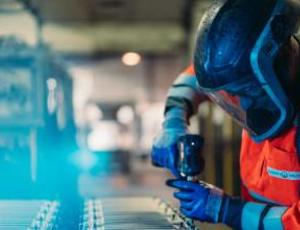Solvay and Veolia announced their partnership to create a circular economy consortium on Wednesday 9 September. The purpose of this consortium is to create a circular ecosystem to optimise the recycling of lithium-ion batteries from electric and hybrid vehicles in Europe, in particular, by improving the management and reuse of critical and rare raw materials.
With the number of electric vehicles on the road around the world expected to increase from eight million in 2020 to 116 million by 2030, access to raw materials will become a strategic challenge.
Solvay and Veolia provide new solutions to manage the metals used in lithium-ion electric vehicle batteries more efficiently. They are already actively engaged with an automobile manufacturer and battery cell manufacturers to jointly implement the best technologies and skills, from the collection of used batteries to the dismantling, extraction, and purification of the metals.
Veolia has been dismantling electric vehicle batteries in its recycling plant located in eastern France since 2013. The metals are extracted using a chemical hydrometallurgical process and are then transformed into new materials.

major ecological and industrial challenges. By partnering, Veolia and Solvay help develop the recycling value chain and the production of strategic raw materials for the production of new batteries. If today the essential compounds of batteries are mainly imported, tomorrow they will be regenerated in Europe
Solvay's role in this consortium, through its Technology Solutions business unit, is to optimise the extraction and purification of critical metals such as cobalt, nickel, and lithium, and transform them into high-purity raw materials for new batteries, ready to be used in new batteries. The project demonstrates that Solvay's technologies are essential in closing the circular economy loop. Solvay is also present in the electric and hybrid vehicle battery value chain thanks to its high-performance specialty polymers for binders and separators and specialty additives for electrolytes.
For Solvay, this partnership is in line with its sustainability ambitions and its Solvay One Planet commitments where the Group has the objective of generating 15% of its revenues from either bio-based or recycled-based materials.




